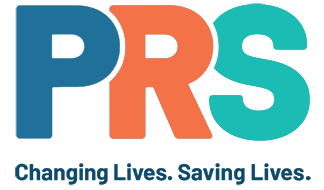Transition to Independence Process (TIP) Program
The Transition to Independence Process (TIP) Model® is an evidence-supported practice* with multiple studies supporting its effectiveness to improve post-secondary outcomes. These include: increased employment and post-secondary career education, improved community-life functioning, and reductions in the use of intensive mental health services and in incarceration.
Goals of TIP
The TIP Model® is a strength-based, youth-driven framework that was developed for working with youth and young adults (14-29 years old) with emotional/behavioral difficulties (EBD) to:
- Engage youth and young adults in their own futures planning process
- Provide youth with developmentally appropriate, non-stigmatizing, culturally competent, and appealing services and supports
- Involve youth and their families and other informal key players in a process that prepares and facilitates them in their movement toward greater self-sufficiency and successful achievement of their goals related to their relevant transition domains.
How does TIP work?
TIP operates within a team-based approach with four providers serving up to 30 individuals per team:
- Clinical Supervisor (LMHP)
- Transition Facilitator, Life Skills Focused (QMHP)
- Transition Facilitator, Supported Employment/Education Focused (QMHP)
- Youth Peer Specialist (RPRS/CPRS)
All providers work with all individuals in complementary roles to support individualized transition processes around core transition domains:
- Employment
- Education and career development
- Living situation
- Personal effectiveness and wellbeing
- Interpersonal relationships
- Community-life functioning
What makes TIP different?
- Youth-driven, strengths-based, evidence-supported wraparound program with demonstrated effectiveness to improve post-secondary outcomes: increased employment and post-secondary career education, improved community-life functioning, and reductions in the use of intensive mental health services and in incarceration.
- Hybrid model offers flexibility to meet virtually and/or in the community.
- Team of providers can support individualized services across several transition areas:
employment and career, education, living situation, personal effectiveness/wellbeing, and
community-life functioning. - Minimal exclusionary criteria – designed to enhance equitable access to high-quality wraparound behavioral health services for individuals in need of community-based support.
*For more information on the TIP Model®, click: CEBC » Transition To Independence Tip Model 2 › Program › Detailed (cebc4cw.org)

